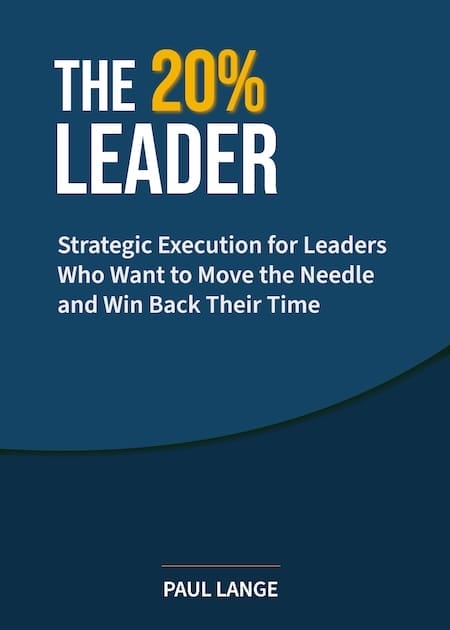In This Article
If your entire business is hanging off one "genius dev", no matter how brilliant—you don’t have a company. You have a hostage situation with great UX.
Here’s the harsh truth:
Technical brilliance is not operational resilience. And yet founders keep falling for the same trap:
🤩 “He’s a 10x coder.”
🤯 “She built the whole thing in three weeks.”
🙄 “Nobody else understands the system like they do.”
Translation?
You’ve architected a bottleneck.
Worse—you’ve incentivised chaos by rewarding solo heroics over scalable systems.
The Worship Reflex That Kills Businesses
Startups love to mythologise developers. The quirky genius who codes at 3am, hates meetings, and loathes documentation?
They’re not your saviour.
They’re your single point of failure with a GitHub account.
Founders enable it because it feels productive. Fast releases. Clever code. Cool features that dazzle early users.
But here’s what’s not happening:
- No SOPs.
- No onboarding documentation.
- No shared ownership.
- No customer support plan.
- No architecture review.
- No culture of clarity, redundancy, or resilience.
What you’ve got is a black box.
When that genius dev gets bored, burned out, or bought out… so does your runway.
Why This Happens
Because as a founder, you’re under pressure to move fast.
- Ship quickly.
- Cut burn.
- Dazzle early adopters.
- Look investable.
So when a dev comes along who can build fast, cheap, and solo—you think you’ve hit gold.
But speed without structure is a firework, not a rocket.
It explodes fast, looks good on launch… and vanishes in seconds.
The Real Cost of the “Dev Messiah” Model
- Knowledge concentration
They know the system. Nobody else does. When they leave, everything slows or stops.
- No operational handrails
No QA. No test suite. No rollback plan. You’re pushing straight to prod because “it works on their machine.”
- Hero dependency
Every emergency becomes their problem. Every feature needs their approval. Nobody else is empowered. Everyone else is paralysed.
- Culture collapse
You build a team of watchers, not doers. They don’t contribute because “he’ll change it anyway.” You’ve built ego-driven dev religion, not team velocity.
- Customer churn
Support gets worse as complexity increases. Bugs linger. Docs are stale. The hero is busy. Your users leave.
But... “Isn’t That Just How Startups Work?”
No. That’s how undisciplined startups die.
Let’s be clear:
- You can move fast and build resilient systems.
- You can reward brilliance without creating dependency.
- You can respect talent and enforce structure.
What you can’t do is scale chaos.
What you can’t afford is to tie your future to a personality.
The Reframe: Replace Worship With Design
Stop worshipping the genius dev. Start designing a business that survives one.
Here’s how.
The 6 Non-Negotiables for Founders Who Want to Scale
1. Build for redundancy from Day One
- Two in a box.
- Peer-reviewed code.
- Architecture that others understand.
- A runway isn’t just money—it’s time to replace critical people without crashing.
2. Enforce documentation like your life depends on it (because it does)
- Everything written down.
- Every decision explained.
- Every system diagrammed.
If your dev complains, remind them: planes don’t fly without manuals. Neither does your product.
3. Make support part of engineering
If they build it, they support it—at least part-time.
This builds empathy, accountability, and visibility.
4. Shift from “code velocity” to “user outcome velocity”
Don’t celebrate features shipped. Celebrate customer pain removed.
That’s how you create value, not just complexity.
5. Use Total QX to force experience into the equation
Total Quality Experience means every part of the product—including how it’s supported, explained, and extended—must be scalable.
Experience isn't just for customers. It's for your team.
If your product is unusable without that one dev, then it’s not finished. It’s a hostage tape.
6. Use Precision Coaching to grow your dev into a leader (or replace them)
If they want to lead—coach them. If they don’t—design the system so you’re not dependent on them.
Genius that can’t be replicated is art, not infrastructure.
You need infrastructure.

Your Team Doesn’t Need a Genius. It Needs a System.
Repeat after me:
“I am not building a shrine. I am building a company.”
That means:
- No more over-functioning around under-structured heroes.
- No more celebrating cowboy coding.
- No more mistaking chaos for creativity.
Every action is on purpose.
You either create a resilient system—or you inherit a fragile mess.
Leadership = Removing the Single Point of Failure
Real leadership is building a business that works without you—or anyone else.
That includes:
- Developers.
- Product leads.
- Founders.
Your role isn’t to be impressed by brilliance.
It’s to extract it, distribute it, and systemise it so others can win without the origin story.
👉 See what this risk looks like from the investor side—especially when the “genius dev” is the founder. Read this: "Programmers Chasing a Payday – The Investor Trap in Basement-Built SaaS.”
If your business crumbles when one person walks…
You never had a business.
You had an apprentice project with a Slack channel.
If this kind of no-fluff, results-first thinking hits home, you’ll want to grab a copy of The 20% Leader—packed with actionable insights for high-stakes leaders who don’t have time to waste. Available on Amazon.



[…] Read next: Stop Worshipping the Genius Dev, Build a Business That Survives One […]